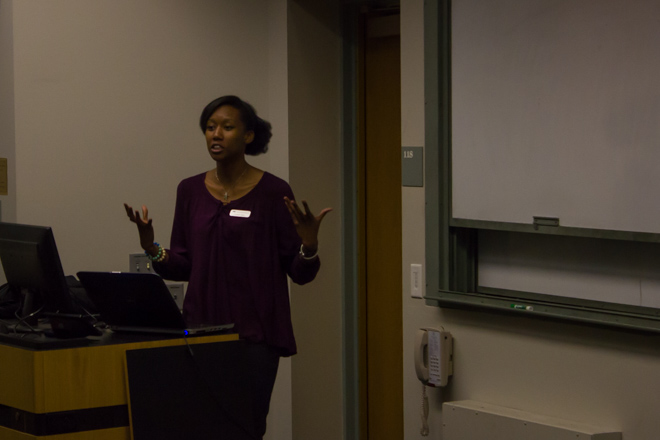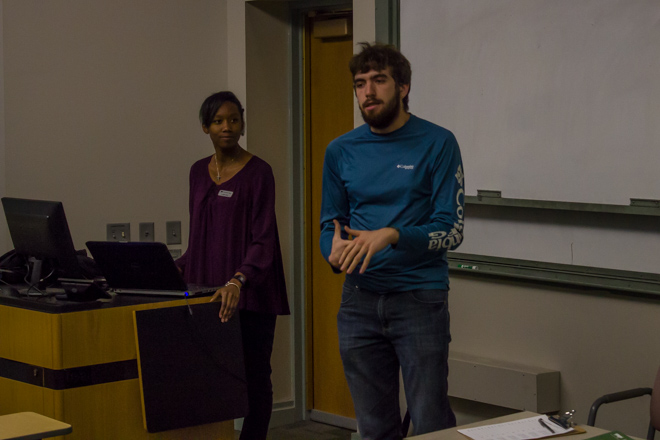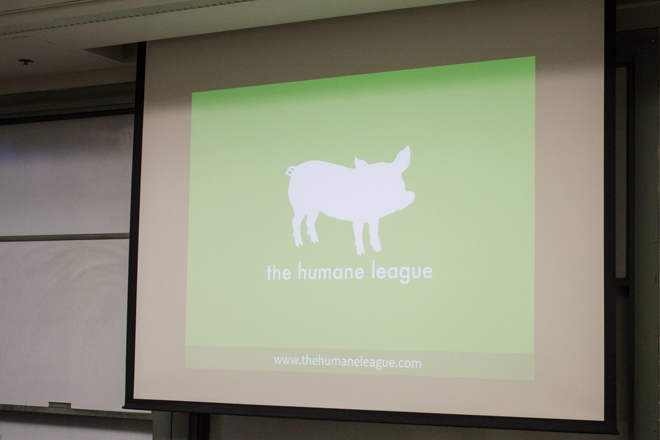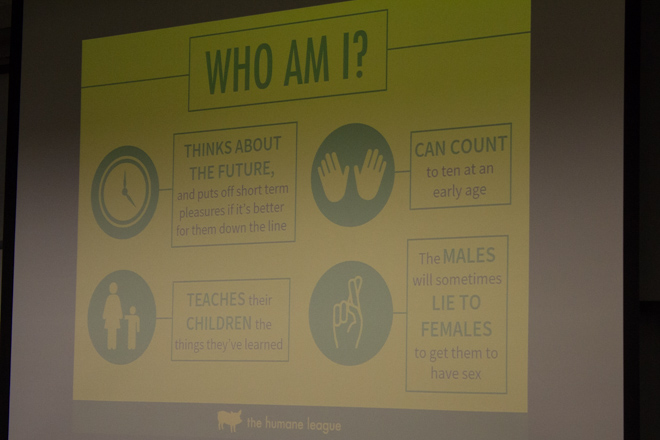Photos by Virginia Nowakowski / North by Northwestern
What animal can count to ten, teach their children and lie to females to have sex? The answer: chickens.
That’s how Clarké Snell, Chicago Grassroots Director of the Humane League, began her presentation in University Hall Monday night. The Humane League is a national organization that works to reduce animal suffering, and Snell’s speech, organized by Real Food at NU and Engineers for a Sustainable World, aimed to educate Northwestern students about animal agriculture.
After discussing the intelligence of farm animals, Snell began to discuss their treatment in the American farming system.
“Your typical chicken factory is going to have 100,000 hens,” she said. “That’s 100,000 hens in about one New York City block.”
She referenced specific farms, talking about how, for example, Prestage Farms keeps their animals in gestation crates. According to Snell, these crates greatly restrict the movement of the animal.
“They stand in the same place, unable to take two steps forward, two steps backward, for their entire lives,” she said.
The audience got to see this treatment first hand as Snell played clips from undercover farmers. The videos, often graphic, showed the brutal conditions in which these animals are kept.
“Those images tonight will stick with me for awhile,” John Brundage, a McCormick graduate student, said of the footage.
“Everything was so shocking,” said Medill junior Hyunjee Lee. She added that the presentation persuaded her to possibly become a vegetarian.
To help combat animal mistreatment, Snell stressed the positive impact of cutting any meat from your diet. She said going meatless can save up to 37 animals a year, but even just cutting your chicken consumption in half can still make a huge impact. Finally, Snell ended the presentation by emphasizing the importance of any dietary change.
“When given the opportunity, we want to make sure that we're voting with our fork,” she said.



